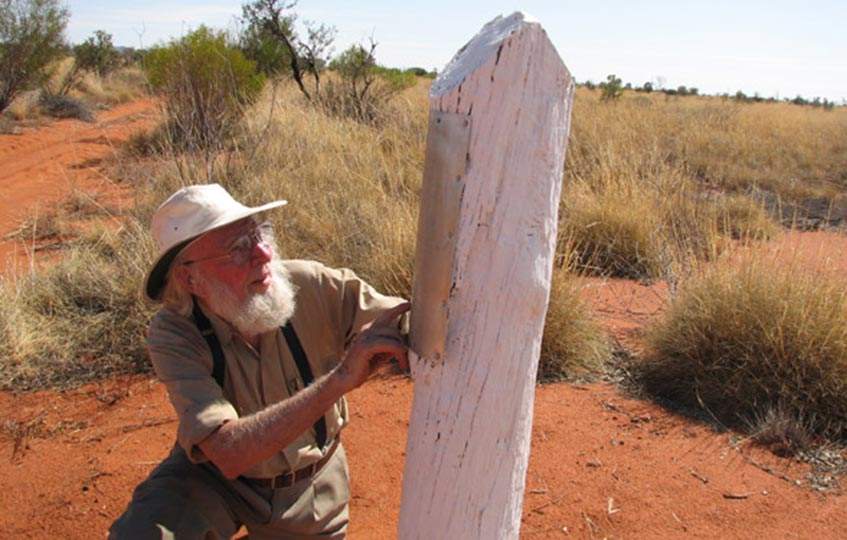Lasseter’s Bones
Documentaries are out there to find the truth, but with this surreal tale from the outback we might be better off not knowing at all.
Overview
In 1931, Harold Bell Lasseter died in a desolate corner of the outback while searching for a fortune he claimed to have stumbled upon years before. Or at least, that’s how one version of the story goes. The fantastical tale of a seven mile stretch of quartz reef filled with gold has lingered in Australian folklore, while its supposed discoverer has been alternately praised as a visionary and denounced and denigrated as a fraud. But more than eight decades later, one man still clings to Lasseter’s legend: his 85-year-old son Bob, who has spent the bulk of his life searching for the reef in the hopes of clearing his father’s name.
A story of obsession and the allure of a tale well told, Lasseter’s Bones is directed by British documentarian Luke Walker, a young man who, like so many others, heard murmurings of Lasseter’s precious metal and came looking. Together, he and Bob follow the same track that Harold did, battling the same rough terrain and unflinching heat that slowly turned sceptical prospectors against the man who promised to make them rich.
Bob and Luke prove a likeable if fairly unlikely duo — two men separated by generations but united by a single, common goal. But as the journey continues, Walker’s faith seems to wane, especially after discovering evidence suggesting not only that Lasseter never found gold, but that he may have faked his own death and escaped his investors to America.
Ironically, while the theoretical purpose of a documentary is to expose or elucidate the truth, Lasseter’s Bones demonstrates how difficult — not to mention, how undesirable — that task can sometimes be. Even as Walker presents multiple versions of Lasseter’s story, it’s obvious which one he and everyone else prefers. After all, who wouldn’t want to believe that there really is gold out there, somewhere? That Lasseter never abandoned his family, but rather died trying to provide for them? That poor, kind, eccentric, optimistic Bob hasn’t wasted his life, all on the word of a charlatan? Lasseter’s Bones never gives us a solid answer. Rather, it suggests we might be better off believing the dream.





